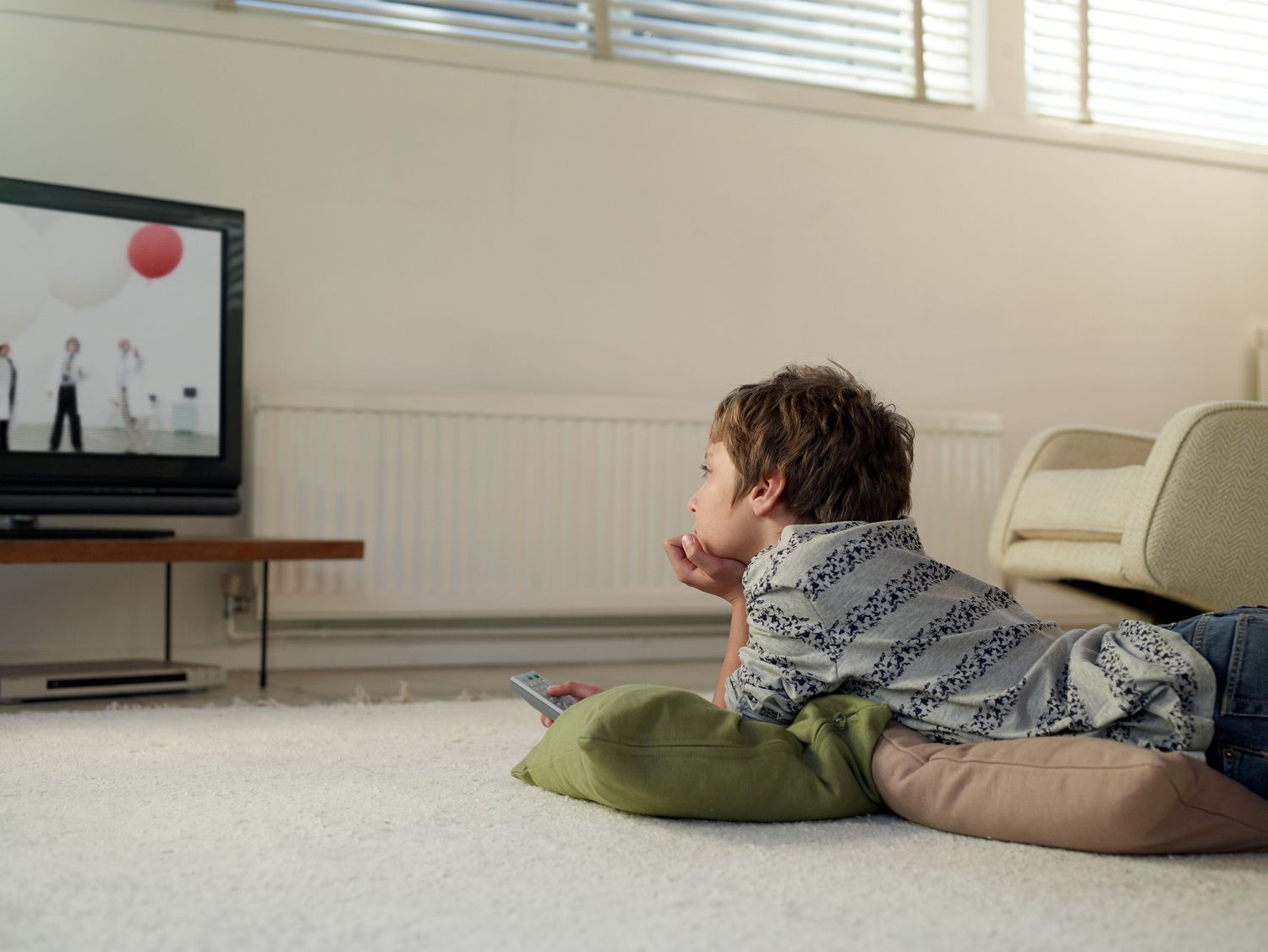The Impact of Childhood TV Viewing on Adult Health

People who spend more time watching TV as children are more likely to experience certain health complications, a new study finds.
It turns out the amount of television you watch as a kid could follow you into your middle age, no matter how your TV habits have changed over the years.
New research out of New Zealand found that, at age 45, people who spent more time watching TV as kids and teenagers had higher blood pressure, higher rates of obesity, and used oxygen less efficiently during exercise than those that watched fewer hours of TV early on in life.
“How parents and society raise children affects their health for their entire lives,” said Thomas Robinson, MD, MPH, co-director of the Stanford Screenomics Lab at Stanford University, who was not involved in the new research.
“If we raise children in an unhealthy environment, with lots of screen time, unhealthy food, and lack of physical activity, we end up with a lot more—and more expensive—health problems in the future,” he said.
The research team used data from nearly 900 people born in Dunedin, a city on New Zealand’s South Island, who were born in 1972 or 1973. Their parents had participated in The Dunedin Multidisciplinary Health and Development Study and reported their children’s weekday TV time (or the children self-reported) at ages 5, 7, 9, 11, 13, 15, and 32 years old.
For the new research, the authors followed up with participants at the age of 45.
Regardless of each participant’s sex, body mass index (BMI) at age 5, and family economic status, those who watched more hours of TV as children had poorer metabolic health in adulthood.
The researchers found that childhood TV habits were more strongly correlated with adult health than the amount of time participants spent watching TV in adulthood.
Although the study does not prove a direct cause-and-effect, there are several ways screen time may cause habits that set a person up for health issues in adulthood, said the study’s lead author, Bob Hancox, MD, head of the Department of Preventive and Social Medicine in the University of Otago’s Dunedin School of Medicine in New Zealand.
The first is that watching TV in childhood likely displaces opportunities to get exercise.
“This does not necessarily need to be sport or other recognized physical activities,” Hancox told Health. “Almost any waking activity uses more energy than watching TV.”
Screen time is also well-documented to disrupt sleep, which has a negative effect on physical health. Additionally, recent studies have suggested that not getting enough sleep can actually cancel out some of the benefits gained from exercise.
But, “Most of the evidence about the impacts of screen time on obesity and chronic disease risk suggest that its effects on eating matter the most,” Robinson, who is also a professor of medicine at Stanford University, told Health.
People tend to eat more when distracted by watching TV, meaning they regularly consume more calories, and commercials for junk food often influence what they choose to eat.
According to Robinson, childhood behaviors may even alter the way a person’s genes are expressed, called epigenetic changes.
“Childhood behaviors may alter a child’s physiology in a way that has long-lasting effects, causing early damage to the body that accelerates future problems,” he said.
The good news is, not all damage caused by poor childhood habits is irreversible.
Robinson explained that even if a person has developed metabolic syndrome—a group of conditions that include obesity and high blood pressure—incorporating more activity into their life and being mindful of eating habits can reverse the conditions.
And it doesn’t take much to incorporate small amounts of activity into a busy schedule. Even just a walk around the block after a meal can help the body better regulate glucose and insulin, which in turn can help manage (or starve-off) diabetes.
The original data for this study was collected starting in the 1970s, long before tablets, smartphones, and laptops significantly increased the amount of time kids spend in front of screens.
Now, the collected data would look a little different.
A 2019 report found that teenagers in the United States—Gen Z, born after 1996—spent an average of 7 hours a day on screens, not counting the amount of time they spent on screens for school work.
Another 2019 study found that kids under 3 years old spent more than twice as much time in front of screens as kids did in 1997.
A study published in 2023 found that screen time among children increased by nearly two hours in the first part of the pandemic and remained elevated by one hour during the second part of the pandemic, when lockdowns were lifted and most kids returned to school and extracurricular activities.
Although not much data exists on how current screen habits affect kids into adulthood, research does show that sedentary behavior (like sitting in front of a computer) has lasting effects throughout a person’s lifetime.
“We have created a toxic world for our children and made life very difficult for parents to provide the most healthful environments possible,” Robinson said.
It’s unclear how different types of screen time may have different effects. Robinson believes that future research should focus on solution-oriented interventions.
“For a long time we have had sufficient evidence to justify action,” he said.
Research-based interventions could provide caregivers, schools, communities, and policymakers with opportunities to intervene early to protect the health of future generations of adults, starting in childhood.
“It is never too late to adopt more healthful behaviors but it is also never too early,” he said. “It is best to start early in children and continue throughout the entire lifespan.”




